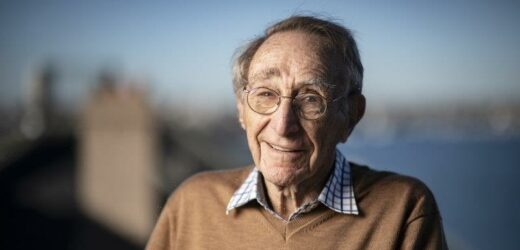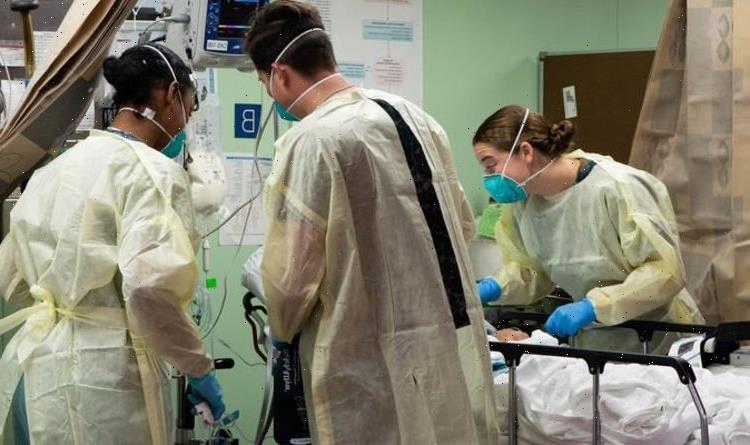Peter Baume views his short stint as a cabinet minister in the Fraser government fondly. In his words he dealt with briefs quickly, was an effective voice in cabinet and provided a good public face for what was trying to be achieved.
But when it comes to improving the lives of Indigenous Australians, his portfolio from 1980 to 1982, he concedes he was a complete failure. And so, he says, has everyone since.
Peter Baume says Australia must address its “festering sore” of past wrongs with its Indigenous population. Credit:Wolter Peeters
At 86, Baume, a former Liberal senator, retired doctor and chancellor of the Australian National University, still laments a lack of progress in reconciliation, Indigenous policymaking and failure to close the gap in disadvantage with non-Indigenous Australians.
“I am ashamed of what I see around me. I am ashamed that we have no effective national response,” Baume says. “I was ashamed by our quick and negative response to the Uluru Statement from the Heart. I am ashamed of the worse figures we have. I am ashamed of the racist views that so many of my compatriots have. And I am ashamed that our political leaders appear not to be ashamed too.“
Despite a long and distinguished career spent fighting for social progress, Baume retains a passion to correct the wrongs of the past. He says Australia will continue to be diminished unless it confronts its troubled past and faces the injustices it has inflicted on its Indigenous peoples.
“We need to face the past. We need to acknowledge what we, as a nation, did,” he says. “It was our ancestors, not us, who did these things, and we are not to blame for what they did. We have inherited the problems they created – but it is for us to make it better now.”
“We need in Australia to think about our original inhabitants in light of discrimination, land-stealing, disdain, the blood-soaked history, murder, the mis-use sexually of many Aboriginal women, and the refusal of some to offer an adequate apology for the generations of little children that were stolen from their parents solely on the basis of their race.”
A strong advocate for the Uluru statement, Baume says the negative response from former prime minister Malcolm Turnbull in 2017 was an example of a politician rushing to judgement without considering carefully what had been said and written.
“He probably did not even have time to read the statement before he spoke,” he says. “Many of us were ashamed by that immediate and thoughtless response. At the very least the then prime minister should have said that he would examine the statement carefully before he said anything officially – but he did not say that. He now calls it ‘poetry’ – it is a pity that he did not use that word in 2017.”
Peter Baume, as ANU Chancellor, presents an honourary degree to Archbishop Desmond Tutu.Credit:Fairfax
Baume says the request for truth telling in the statement was “one of the great things” which happened in South Africa after Nelson Mandela became president. He believes something like that truth and reconciliation commission would help Australia be honest with itself.
“For many people, it enabled them to admit what they had done, put the past behind them and to move on to a better future. South Africa is stronger today because that commission was held,” he says.
Baume adds that current Indigenous Australians Minister Ken Wyatt is “really trying” to get some progress on some important fronts.
The federal government had promised to legislate a Voice to parliament this term but earlier this month Wyatt flagged that might not be possible before next year’s election.
The concept has proven controversial among many community leaders and the Coalition party room remains divided on the issue despite a growing number of vocal advocates.
Indigenous leader Charles Perkins with then Aboriginal affairs minister Peter Baume.Credit:Fairfax Media
The latest data from the new Closing The Gap agreement shows Indigenous people are still far more likely to be jailed, die by suicide and have their children removed than non-Indigenous people.
Baume says the figures are a disgrace in a rich country.
“These are such awful figures that they deserve a serious national response, like that which Australia was able to mount for the COVID crisis,” he says.
“If we could do it for that crisis, why have we not applied ourselves in the same way to the awful deficiencies in Aboriginal health. What we have going on is a crisis too. It seems that we do not attach the same urgency of matters affecting Aboriginal society as we do to matters affecting white society.”
He says serving in the portfolio had changed his life forever. Small policy successes such as connecting water pipeline to rural communities to use washing machines for the first time were the types of ways he could empower people at the time. And he said Malcolm Fraser could always be relied on for support.
“He was quite unlike the austere image he presented publicly,” he said.
“But there was complete failure, in my time, to improve the sorry lot of Aboriginal Australia. We still made policy from Canberra, the health gap was not narrowed, the incarceration rate was not lessened, employment rates did not rise, and so on.”
Baume says until the elements of the Uluru statement can be addressed and more progress can be made towards closing the gap in health, education, employment and incarceration rates Australia will continue to have a “nasty festering sore”.
“We will be stronger and better if we do confront our past.”
Most Viewed in Politics
From our partners
Source: Read Full Article





